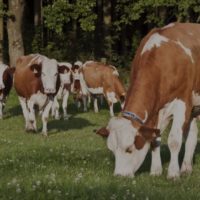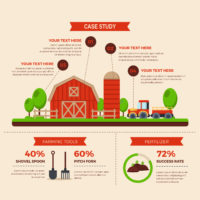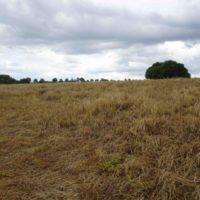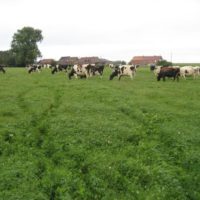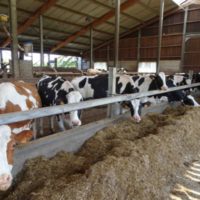Barn drying
Practice abstract
Description
Barn drying is a method of artificially drying the fodder by ventilation.
In principle, the grass is harvested at a dry matter content between 45% and 60%, after a first on field drying. This grass is, then, transported to the on farm drying barn, where it is dried and stored. The drying is done through a hot and/or dry air ventilation through the mass of grass.
This drying method has many advantages:
- Reduced forage losses in the field, in comparison to classic hay (that breaks the grass size through tedding, and so a bigger proportion stays on the field);
- Better nutritional quality of the grass, thanks to faster drying;
- Improvement of palatability and ingestion;
- Better forage quality that improves animal health and increases production; or at equivalent production, reduces concentrate consumption;
- A milk quality that is ideal for cheese production (few butyric bacteria).
The main criticism of this kind of installation is the very high cost of the initial investment.
Moreover this mode of harvest and drying management, which is more technical and more laborious than silage, is not suitable for everyone.
The main recommendations for any farmer interested in this method of drying are:
- Pay particular attention to the design of the installation
- Consider less expensive barn drying systems
- Acquire know-how for the management of the dryer
- Put in place a better valorization of the final product of the exploitation (milk, meat…)
- Consider the overall direction of the farm in order to maximize the benefits of this method. For example, barn drying is very well adapted to organic production (better valorization of the meadow) and cheese production (few butyric bacteria).
Abstract also available in:
Dutch | French | German | Italian | Polish | Swedish
Additional information
| Farming system | organic farming |
|---|---|
| Domains of innovation | forage conservation technique |
| Main types of animal | dairy cattle |
| Country | Belgium |
| Product type | Practice abstract |
| Language | English |

